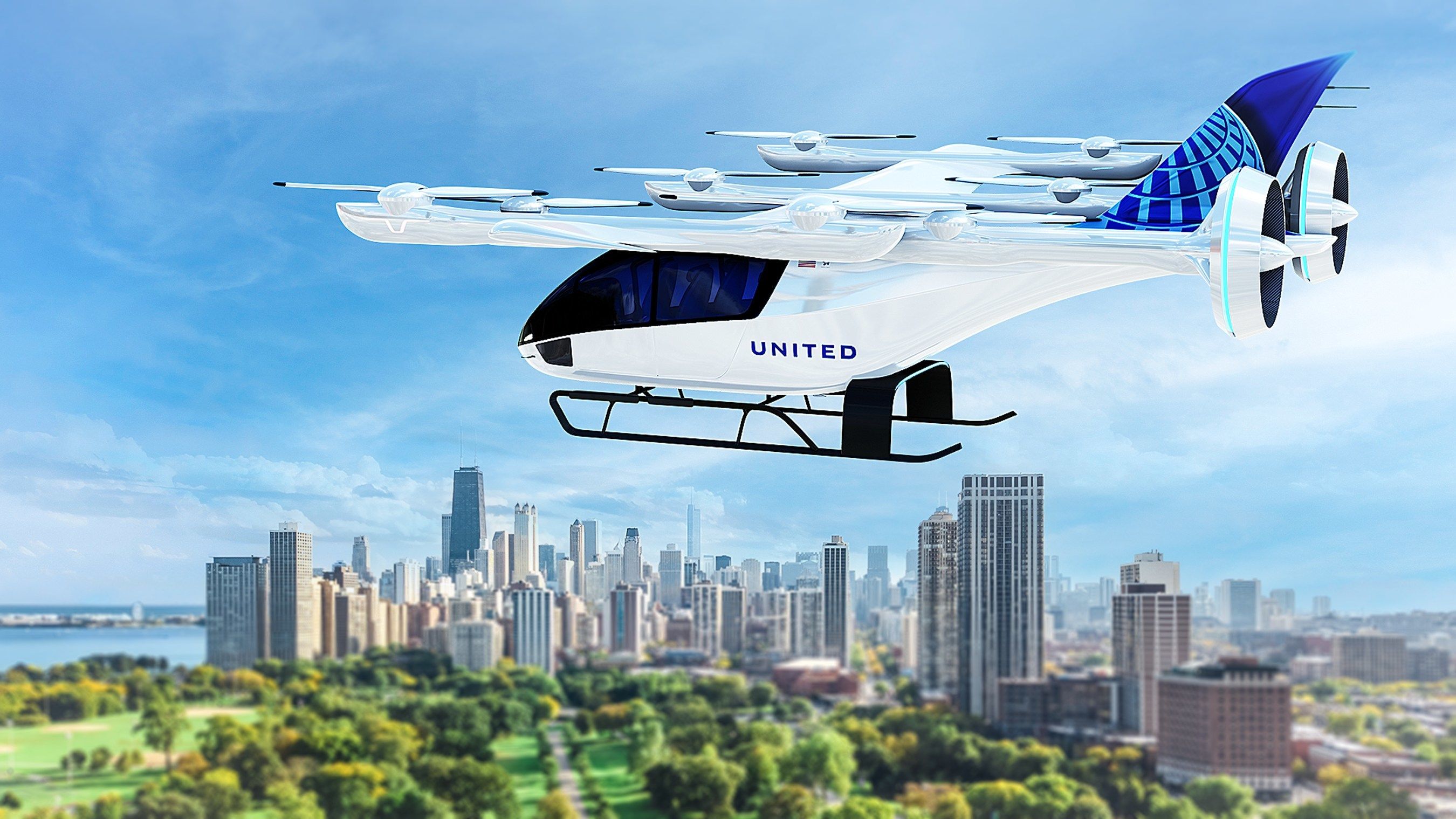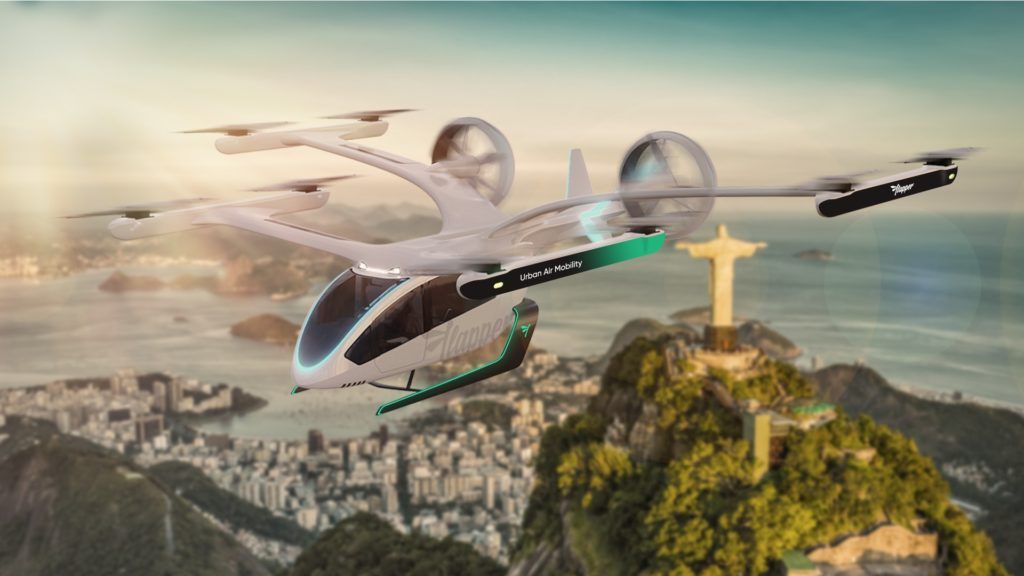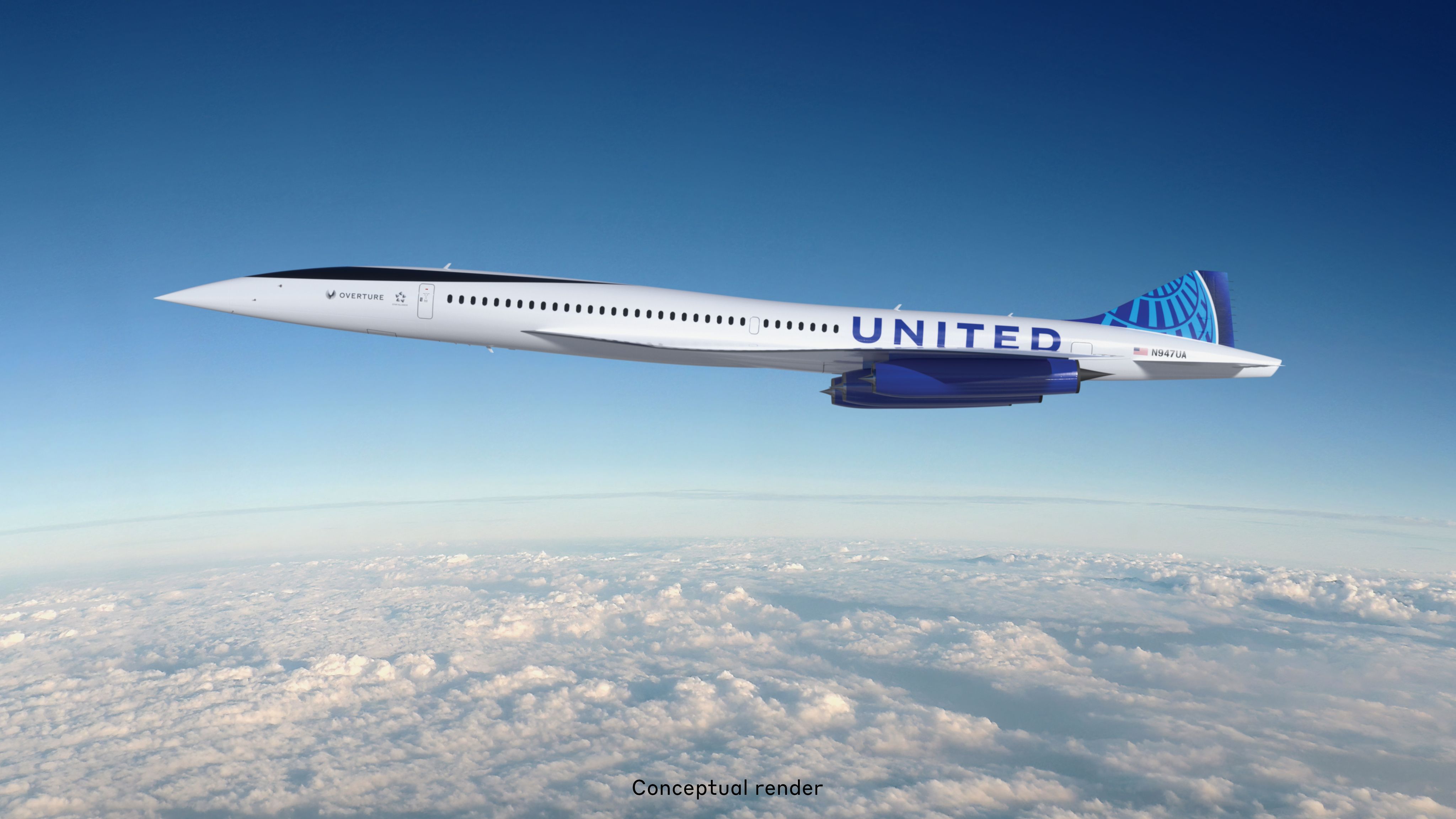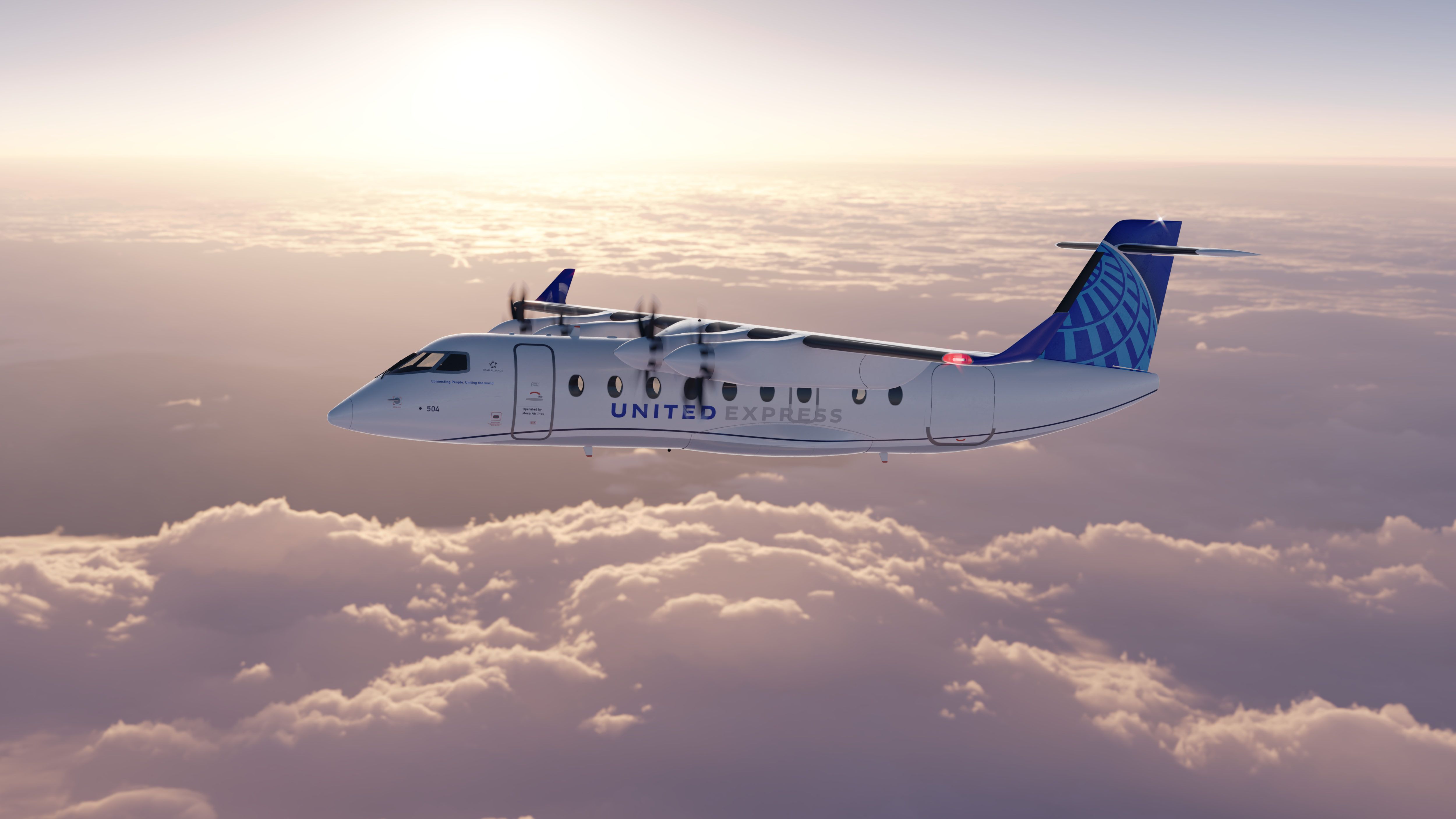United Airlines has today announced a second major investment in new electric vertical take-off and landing (eVTOL) technology. Following its recent deposit payment to Archer Aviation, the airline has invested $15 million in Eve Air Mobility, alongside a conditional purchase agreement for the vehicle.
The purchase agreement covers a total of 200 of the four-seat electric aircraft, and includes options for 200 more. United says it expects the first deliveries of the Eve aircraft in 2026, and that the agreement also includes collaborative partnership elements, including studies on the development, use and application of Eve's aircraft and the urban air mobility (UAM) ecosystem.
Michael Leskinen, President of United Airlines Ventures, commented on the announcement saying,
“Our agreement with Eve highlights our confidence in the urban air mobility market and serves as another important benchmark toward our goal of net zero carbon emissions by 2050 – without using traditional offsets. Together, we believe our suite of clean energy technologies will revolutionize air travel as we know it and serve as the catalyst for the aviation industry to move toward a sustainable future."
Eve was formerly part of Brazilian planemaker Embraer, but was spun off into a publicly traded company in May this year. It is now housed within a shell company called Zanite Acquisition, joining a number of other eVTOL companies in going public, including Lilium, Archer, Vertical Aerospace and Joby.
Momentum for Eve
One of the strongest benefits of its recent public listing has been the significant capital raise that came with the sale of stock. When it went public, Eve raised $375 million, with Embraer holding 90% of the stock. Before floating on the stock exchange, Eve already had provisional sales and commitments for some 1,825 of its aircraft, from 19 different customers.
Notable commitments include a 200 vehicle order from Global Crossing Airlines (GlobalX), a letter of intent for 40 Eve from Kenya Airways subsidiary Fahari Aviation, and 100 eVTOLs for Singaporean company Ascent to provide urban air mobility in the Asia-Pacific region. The prototype has recently completed experimental test flights in Rio and last month the company announced its first simulation event in Chicago, to test out the practicalities of a UAM network in the city.
Despite these important and positive milestones, having a big customer like United Airlines on board is a huge boost for Eve. Andre Stein, co-CEO of Eve commented on the United commitment saying,
"United's investment in Eve reinforces the trust in our products and services and strengthens our position in the North American market. I am confident that our UAM agnostic solutions, coupled with the global know-how we have been developing at Eve and Embraer's heritage, are the best fit for this initiative, giving United's customers a quick, economical and sustainable way to get to its hub airports and commute in dense urban environments. It is an unparalleled opportunity to work with United to advance the US UAM ecosystem, and we look forward to it."
Hedging its bets
With this order, United Airlines has become the first major airline to invest in not one, but two eVTOL products for its future fleet. The firm announced its intention to work with Archer Aviation and placed a tentative order for 200 of its flying taxis back in 2021. That order was strengthened last month, when United placed a down payment on its order to the tune of $10 million.
The initial order has a full value of $1 billion, with options for another $500 million worth of Archer eVTOLs in the future. Pending regulatory approval, United hopes to get its first Archers as soon as 2024, and will be the launch customer for the four seater aircraft. Leskinen added,
"United has made early investments in several cutting-edge technologies at all levels of the supply chain, staking out our position as a leader in aviation sustainability and innovation. Today, United is making history again, by becoming the first major airline to publicly invest in two eVTOL companies.
It’s not only eVTOLs that United Airlines is getting futuristic about either. Last year, the airline became one of the early investors in Boom Supersonics’ Overture supersonic aircraft. It has an initial order in for 15 of the type, with options to take up to 35 more.
The airline has also signed with Breakthrough Energy Ventures in collaboration with Mesa Airlines to invest in Heart Aerospace, a company that is developing a 19 seater all electric airplane that can fly for up to 250 miles. Under the agreement, United has placed a conditional order for 100 of the ES-19, and Mesa has an order of the same size as well.
And that’s not all, because United has also committed to hydrogen-electric with a stake in ZeroAvia. The British-American company is developing hydrogen fuel cell technology for aviation, and United has earmarked the purchase of up to 100 of its engines to be integrated into United Express aircraft in 2028.
While it might seem like United is jumping on every bandwagon that rolls past, the airline has some ambitious sustainability targets to meet, and realizes that it cannot get there alone. By putting its money where its mouth is and investing in these startups, it is helping accelerate the transition towards a more sustainable future for aviation.
Of course, there is an element of hedging its bets here too. With its fingers in so many pies, whichever way the sustainability pendulum swings, and whichever technology ends up being the one to flourish, United is already at the front of the queue to sign up for it.
What do you make of the airline’s investment in a second eVTOL manufacturer? Let us know your thoughts in the comments.





